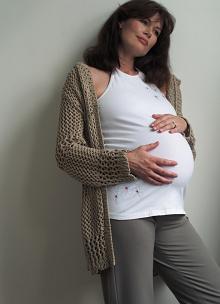Antibody samples taken from mothers of autistic children are able to bind to proteins in the fetal brain and react against them. These antibodies inhibit the development of the fetal brain

The antibodies present in our bodies are designed to fight infections that invade the body, such as bacteria and viruses. But Dr. Judy van de Water has now demonstrated that antibody samples taken from mothers of autistic children are able to bind to proteins in the fetal brain and react against them. The results indicate that it is possible that some of the autism cases are related to the passage of antibodies during pregnancy, from the mother to the fetus through the placenta. These antibodies inhibit the development of the fetal brain.
"Dr. van de Water's results show that factors in the maternal immune system are associated with at least one type of autism," says David Amaral, director of research at the MIND Institute and head of the current study. "We wanted to take this important finding one step further and find out whether exposure to antibodies during pregnancy can cause the changes in social functioning and behavior that we witness in autistic children."
In order to test the hypothesis, Amaral and his research team exposed eight pregnant rhesus monkeys to human antibodies three times, in the late first trimester of pregnancy. Eight of the funds received antibodies from mothers of children with autism, while four others received antibodies isolated from the blood of mothers of normal children, to make sure that the human antibodies do not cause harm on their own. Five funds did not receive any treatment and participated in the study for the purpose of review only. The researchers expected to see that if the research hypothesis was valid, then the monkeys that received the antibodies from mothers of autistic children would themselves give birth to monkeys with behavioral problems.
When the 13 offspring were born, their behavior and social abilities were carefully monitored and recorded for a year and a half.
The team discovered only slight changes in the social abilities of the four monkeys born to the mothers who received autism-related antibodies. The ways of behavior of the monkeys, however, were very different from the normal monkeys. All four tended to engage in repetitive behaviors, such as side-to-side pacing, somersaults, gyrations, and side-to-side rocking. These practices were repeated much more frequently and for longer periods of time than observed in the other monkeys in the study. The customs appeared most acutely after the monkeys were weaned from their mother's milk, and especially when the monkeys were transferred to an unfamiliar environment.
"The main importance of the research is in the link it makes between exposure to unusual elements of the immune system during pregnancy, and certain ways of behavior that the fetus exhibits," says Amaral. "The behavior of the monkeys is very different from normal, and these changes are similar to the disabilities we find in autistic children. The study adds further evidence to the hypothesis that factors in the mother's immune system can contribute to the development of certain types of autism."
Although the findings are particularly exciting, Amaral says that it is necessary to conduct the study on a larger group of monkeys before it can be confirmed that exposing the fetus to antibodies during pregnancy increases the risk of autism. If indeed the antibodies cause autism, it will be possible to develop clinical methods to identify the risk factors during pregnancy. Even simple blood tests can detect the presence of the specific antibodies in the mother's blood. The researchers hope that drugs currently given against autoimmune diseases (diseases in which the immune system attacks the body by mistake) will also be able to stop the harmful effect of the antibodies on the developing fetus.
For information on the University of California at Davis website
